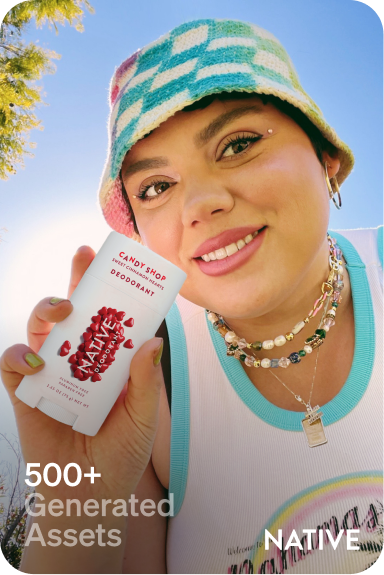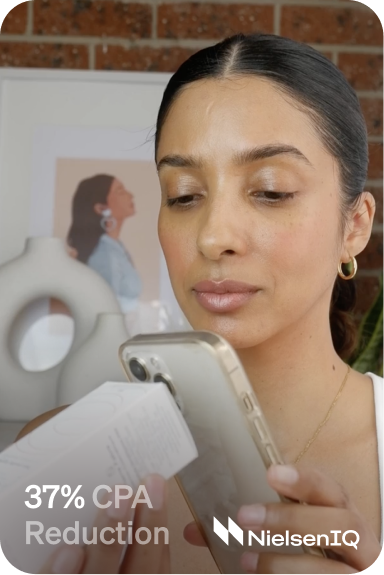The terms “content creator” and “influencer” are often used interchangeably, but they’re not the same.
Luckily, you’re on the right page. You’ll learn:
- The distinctions between these online personalities, based on their goals, platforms, strategies, audience relationship, and fees
- How to leverage those distinctions for successful brand collaborations to reach your marketing goals
We’ll also feature many examples, insider tips, and easy-to-read comparison tables so keep reading below.
Tl;dr:
DifferencesContent creatorInfluencerCreates content forMonetization
To share talents
Building awareness
Promoting a lifestyle
Sponsoring brands
PlatformBlogs and websites
Newsletters
Social media platforms
Social media (Facebook, Instagram, TikTok, YouTube)StrategiesContent marketing
SEO
Digital marketing
Social media management
Audience management
Promotion
Advertising
TacticsBlog posts
Informative videos
Keyword research
Audience analysis
Competitor research
Content planning
Edited photos
Edited videos
Persuasive texts
Live streaming
Sharing personal stories
Audience relationshipBuilt through information; based on trustBuilt through persuasion; based on engagement and loyaltyWhat they can do for youContent creators can endorse your expertise and products through a transfer of trust.Influencers can build a loyal community around your brand.Brand collaborationsHigh-quality content that’s brand aligned
Word of mouth
Expert endorsement for your tools and products
Affiliate sales
Product sponsorships
Endorsing your values
Creating awareness
FeeTypically lowerTypically higher
1. Content Creator vs. Influencer: Goals and Platform
Online personalityCreates content for:PlatformContent creator· Monetization
· To share talents
· Building awareness
· Blogs and websites
· Newsletters
· Social media platforms
Influencer
· Promoting a lifestyle
· Sponsoring brands
Social media (Facebook, Instagram, TikTok, YouTube)
Both content creators and influencers create forms of content.
There’s a catch:
There are some key differences regarding that content’s purposes and social media platforms:
- Content creators’ primary goal is creating an audience that would later help them monetize their talents. Their social media channels include mainly websites, blogs, and YouTube – where they discuss specific topics at length.
One example is driving instructor Richard Fanders, who creates relevant content for newbie drivers and learners on his channel Conquer Driving:

Backlinko’s Brian Dean is also a great content creator example. The quality of content is remarkable: Brian has built a comprehensive blog and insightful newsletter while also publishing hundreds of contributor articles on other websites.

Their purposes are clear: both Richard Fanders and Brian Dean want to educate their respective audiences and build more traffic to their website to monetize their skills.
Side note: Content creators use social media too, but only as secondary channels.
- Influencers mainly aim to promote a specific lifestyle, values, or products they genuinely believe in. Their primary purpose is creating engagement through building a loyal community of followers. That’s why influencer content can power up your TikTok marketing strategy or other social media campaigns.
Samira Ahmed is an Instagram beauty and lifestyle micro-influencer:

Notice that this post above is an ad for a clothing company called Marshalls.
But Samira has built a loyal following through her polished content, presenting herself as a beauty and fashion guru:

Side note: Influencers have different niche expertise, from education to music, video games, or finances.
2. Content Creator vs. Influencer: Strategies and Tactics
Online personalityStrategiesTacticsContent creator· Content marketing
· SEO
· Digital marketing
· Blog posts
· Informative videos
· Keyword research
· Audience analysis
· Competitor research
· Content and social media plans
Influencer
· Social media management
· Audience management
· Promotion
· Advertising
· Edited photos
· Edited videos
· Persuasive texts
· Live streaming
· Sharing personal stories
To recap:
- Content creators want to build awareness through their content to monetize their abilities.
- Influencers want to build engagement through their content to promote a certain lifestyle and get brand sponsorships.
Since these goals differ, you’ll also have differences between influencers and creators in terms of strategies and tactics.
- Successful content creators’ primary strategy is content marketing. They need to create engaging, informative content through storytelling. They also need to plan and optimize their content better to rank higher in search engine results. Therefore, creators must understand at least the basic principles of SEO (by following a detailed SEO checklist or working with reputable services) and content creation to increase their search engine visibility and organic traffic. Following a template content plan can also be helpful here.
- Influencers use social media content and advertising as primary strategies. They aim to elicit emotion and create engagement, so they use edited photos and videos, live streaming, and personal stories. After all, they must create this bond with their loyal followers to promote a specific lifestyle, mindset, or value.
Here’s an example from Brian Dean’s blog. You can notice top-notch SEO elements and storytelling from the first few lines:

The title is catchy, and it features numbers and brackets. These create curiosity and increase the click-through rate. And the short intro is a case study in storytelling by itself, even though it’s packed with keywords that match the search intent for this topic.
By comparison, FitDad excels at telling jokes on Instagram.
His posts are amazingly well-edited, and their purpose is obviously to elicit amusement. This shared humor and inside jokes are the cornerstones of his audience engagement:

Side note: One of the disadvantages of content creators is their limited content expertise, at least regarding SEO.
3. Content Creator vs. Influencer: Audience Relationship
Online personalityAudience relationshipWhat it means for youContent creatorBuilt through information; based on trustContent creators can endorse your expertise and products through a transfer of trust.InfluencerBuilt through persuasion; based on engagement and loyaltyInfluencers can build a loyal community around your brand.
An influential content creator aims to educate their audience. That information is how a creator builds their community. And in turn, the relationship they build is based on trust.
To maintain credibility, many content creators turn to essay writer from EssayService to ensure their content is thoroughly researched, well-structured, and engaging.
Driving instructor Richard Fanders has created numerous educational driving videos, like this one:

Newbie drivers or people who are just learning can soak up a lot of information from those videos.
As a result, they trust Richard and the info he provides.
Things are different with influencers.
Influencers aim to influence their followers. They are masters at persuasion, and the relationships they build are based on constant engagement and loyalty.
Influencers share very personal stories and values.
That’s how they increase their engagement rates and obtain new followers who want to become members of the community they built.
Just look at how fitness influencer Lucy Reeves discusses her struggles and journey with body acceptance:

By comparison, people know next to nothing about Richard Fanders, his values, and his lifestyle. The community that Richard built is simply interested in his valuable content; they don’t interact with each other or share the same vision of the world.
Here’s what that real difference between content creators and influencers means for you:
- Content creators can endorse your expertise and products through a transfer of trust. This will increase your visibility and sales.
- Influencers can build a loyal community around your brand. They will create awareness, increase your audience interactions, and boost your sales in the long term.
Driving instructor Richard Fanders usually endorses two driving insurance companies, Collingwood and Confused. By comparison, Lucy Reeves promotes products from brands that support her values (i.e., body positivity and diversity).
Side note question: Who has the largest audience, a content creator or influencer?
Typically, influencers have larger audiences than content creators. But as always, the answer depends on particular circumstances.
There are different types of influencers:
You can find nano-influencers with barely 1, 500 followers, and huge content creators like PewDiePie, with millions of followers.
Get the most out of niche influencers with our nano-influencer marketing agency
4. Content Creator vs. Influencer: Brand Collaborations
Online personalityBrand collaborationsCreator· High-quality content for brands
· Word of mouth
· Expert endorsement for your tools and products
· Affiliate sales
Influencer
· Product sponsorships
· Endorsing your values
· Creating awareness
If you’ve read so far, you already understand what goals, strategies, and tactics influencers and content creators use. And you know how these social media personalities relate to their respective audiences.
That means you have a pretty good idea of how a potential collaboration will go with each.
But let’s make it clearer.
Content creator collaborations regard:
- Content creation: Some content creators will work with your company to help you understand your marketing goals and develop a specific content strategy for reaching them. They may even build content (i.e., videos or blog posts) for you.
- Content sharing: Other creators may share your content. For example, you can pitch a journalist or an editor in your niche with a blog post idea, industry study, or a tool that helps your mutual audience. Other creators have review sites, and you can pitch your product to them, along with an affiliate link, to help them earn from these sales.
For example, gamer and YouTube influencer PewDiePie posted this video, which is a sponsored ad for Minecraft.

But notice there’s also an affiliate link for Gfuel with a promotional code.
By comparison, influencers want to preserve the engagement and solid relationships they’ve built with their audiences.
As a result, your collaboration with an influencer can regard:
- Sponsoring products that align with your shared values to increase your sales
- Endorsing your values and lifestyle ideas, prompting purchasing decisions
- Bringing more awareness and organic traffic to your brand & products
Pro tip: Choose the best types of content for your target audience, marketing and business goals, as well as the channel.
Sometimes, product reviews work best, while other times, you need catchy TikTok ads to decrease CPAs and fight ad fatigue.
This ad we created for the Bumble dating app is an excellent example:

5. Content Creator vs. Influencer: Rates
The last factor to consider in the creator vs. influencer debate is each digital personality’s rate. After all, your budget and spending capacity are essential to ensure a fruitful collaboration.
As a rule of thumb, content creators are generally more affordable than influencers.
Digital content creators can:
- Share your case studies, content, and useful tools for free simply because they find these useful for their audience.
- Receive payment through affiliate commissions or product seeding.
Side note: If you employ a creator to develop your content marketing strategy, their rate will be considerably higher depending on your needs.
Influencers can get paid:
- For each deliverable
- Per campaign
- Through product seeding
- Through commissions from affiliate links
Pro tip: The influencer rate sheet will have specific info on all these fees, but the typical unwritten rule in the industry is $100 for every 100 followers per social media post.
Content Creator Vs. Influencer: Which Should I Choose?
Now that you’re here, you’re ready to pick the right collaborator for your business.
So, choose according to your goals, audience interests, and the strategy that fits your creative brief.
Insider tip: At inBeat, we never search for creators or social media influencers without a clear creative strategy.
That creative strategy will tell you which type of content, marketing channel, and, ultimately, collaborator is best to support your marketing goals.
- Content creators: Best for content marketing, building visibility, credibility, and trust. They can boost organic traffic, create expertise, and determine purchase decisions.
- Social media influencers: Best for social media marketing and content amplification. They can accelerate your awareness, build an engaged audience, and boost your sales steadily.
Remember: Vet your potential collaborators, checking their engagement rates, fake followers, audience profile, and content style.
If you need additional help selecting the right people, book a free strategy call with us.
We partner with only the top 2% of influencers and creators, so we’ll pick top performers to ensure your marketing campaign’s success.
Want more examples of successful influencer marketing strategies? Check out our case studies.





.svg)
.svg)
.svg)
.svg)


.svg)










